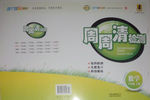题目内容
The road ________ and turns up the side of the mountain.
- A.bends
- B.twists
- C.stretches
- D.spreads

 名牌中学课时作业系列答案
名牌中学课时作业系列答案 明天教育课时特训系列答案
明天教育课时特训系列答案 浙江新课程三维目标测评课时特训系列答案
浙江新课程三维目标测评课时特训系列答案 周周清检测系列答案
周周清检测系列答案While cleaning the snow on the road, _________.
| A.a wallet was found on the ground. |
| B.a wallet appeared on the ground. |
| C.I found a wallet lying on the ground. |
| D.I found a wallet laid on the ground. |
Today’s drivers may feel shocked by the high price of petrol when they drive to the gas station. However, the car industry has the technology to solve the problem. It’s the hybrid car(混合动力汽车).
What is a hybrid car? Any car that uses two or more sources of power is a hybrid car. Most hybrid cars on the road right now are petrol-electric hybrids. The petrol-electric hybrid car is just what it sounds like — a cross between a petrol-powered car and an electric car.
A gas-powered car has a fuel tank(油箱), which supplies petrol to the engine. An electric car, on the other hand, has a set of batteries that provides electricity for the car.
To be useful to you or me, a car should be able to run at least 300 miles (483 km) before refueling, be capable of(能够) being refueled quickly and easily and fast enough to keep up with the other traffic on the road.
A petrol car meets these requirements(要求)but produces a large amount of pollution. An electric car, however, produces almost no pollution, but can only go 50 to 100 miles (80 to 161 km) between recharging(充电). And the problem has been that the electric car is very slow and inconvenient to recharge.
A petrol-electric car combines the advantages of the two power sources into one system that uses both gas power and electric power. Some experts believe that the hybrid car is “the next generation of smart cars”. A hybrid car can go up to 50% further than a traditional car can on the same amount of gas! It saves driver’s money on gas and cuts air pollution!
1.What do the underlined words “the problem” in Paragraph 1 refer to?
|
A.The price of petrol goes up and down. |
B.The gas-powered car is sold at a high price. |
|
C.The gas-powered car causes air pollution. |
D.The price of petrol keeps going up. |
2.How many sources of power do most hybrid cars use?
|
A.Two. |
B.Three. |
C.Four. |
D.It depends. |
3.The author thinks that electric cars _____.
|
A.are smart vehicles |
B.are popular vehicle |
C.are not practical |
D.are not slow |
4.Some experts believe that the hybrid car will have a large market in future because _____.
|
A.it is just powered by renewable energy |
B.it saves money and is eco-friendly |
|
C.it goes further than a traditional car |
D.it is safe, cheap and produces no air pollution |